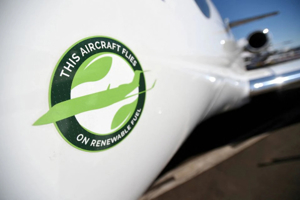IATA head says price of sustainable fuel likely to remain high
(Reuters) - SAF is likely to stay more expensive than kerosene even when large-scale production kicks in and the cost won't deter airlines from their carbon emission targets, International Air Transport Association head Willie Walsh said.
IATA previously estimated that SAF could contribute around 65% of the reduction in emissions needed by aviation to reach net-zero emissions by 2050.
"I truly believe SAF will always be priced at a premium to kerosene," Walsh told a conference in Lisbon.
"I believe the industry is ready to embrace that. The industry recognizes the problem, is doing everything it can to address it and we will achieve the targets because...there isn't an option here."
He expected the price of SAF to come down when deliveries reach a large scale, compared to "tiny volumes" now, though it will remain at a premium to kerosene.
The CEO of British Airways and Iberia owner IAG, Luis Gallego, said travel would become more expensive as a result of the decarbonization effort, but the sector was hopeful it could maintain affordable ticket prices.
"That's the challenge, but we don't have any alternative but to meet the targets," he told Bloomberg TV on the sidelines of the event. "What we need is production of SAF. It doesn't make sense to bring SAF from the United States and put it in our planes in Europe."
Asked about the rising price of oil and regular aviation fuel, he said the company's hedging policy covered about 70% of fuel costs this year.
Walsh also said that a slow post-pandemic recovery in passenger numbers in Asia has weighed on global air travel, but demand in general remained strong and airlines were upbeat about the outlook for this year.
"That recovery (in Asia) is gathering pace, but there are some issues that will have an impact on whether it can return back to the 2019 levels," he told the event.
"I think the demand is strong," he said, adding that most markets were close to where they were in 2019, but in Asia they were 30-35% below.







Comments